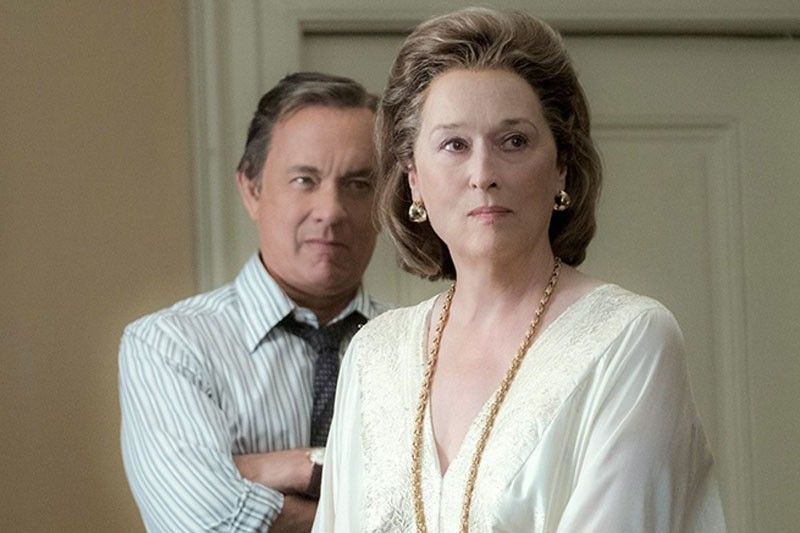History moves in circles

Meryl Streep (with Tom Hanks) plays publisher Katherine Graham in the movie
Film review: The Post
MANILA, Philippines — It’s far too easy to treat history as bullet point facts, and ignore the struggle and tension behind decisions with deep consequences. So the true value of films such as The Post is to give us a behind-the-scenes glimpse of how the decision of The Washington Post to take up the cudgels of the press freedom fight initiated by the New York Times to publish the leaked Pentagon Papers in the early ’70s was made. That the likes of director Steven Spielberg, Meryl Streep and Tom Hanks are involved in the film at a time when the Trump administration is waging its battle against fake news and the liberal press is surely no coincidence.
The film opens in 1965 with military analyst Daniel Ellsberg (Matthew Rhys) involved in a night time jungle battle in Vietnam. We then shift to the early ’70s and witness Ellsberg secreting away classified papers that detail the systematic manner in which four successive administrations have withheld vital information about America’s involvement in Vietnam. Counting on the public’s right to know, and the freedom of the press, Ellsberg leaks the Pentagon Papers to the New York Times. When Pres. Nixon has a court issue an injunction against the Times, we are brought to the Washington Post, caught in an internal conflict of whether to publish their own copy of the Papers; and meet owner/publisher Katherine Graham (Streep) and her editor, Ben Bradlee (Hanks).
The struggle within the Post carried the added dimension of Graham being perceived as a weak publisher, a woman who ran the newspaper simply by virtue of being the daughter of the owner, and mired in what was seen as a man’s world. And it’s here that Streep provides the acting chops, giving us the Graham arc from often-tolerated Washington society matron to woman of steely resolve and commitment. Bradlee is her wingman in this scenario, and Hanks gives us Bradlee as lovable, stubborn rascal.
Spielberg seems to relish recreating this newspaper world of the ’70s; and this is truly evident when the presses run, and we’re gifted with a montage featuring Linotype printing machines. It’s the exposition part that opens the film that is the film’s weakness, too plodding and matter of fact; and the film only picks up as the struggle as to whether to publish or desist is highlighted. It’s here where the film hits its mark and has us invested.
When the film ends with the Watergate break-in, The Post becomes a virtual prequel to All the President’s Men. What’s telling is the notion of how history moves in circles, and repeats itself. There is a lesson here, an exhortation to remember that the freedom of the press exists more for “the governed... and not the governors.”
- Latest
- Trending

























 Exclusive
Exclusive






